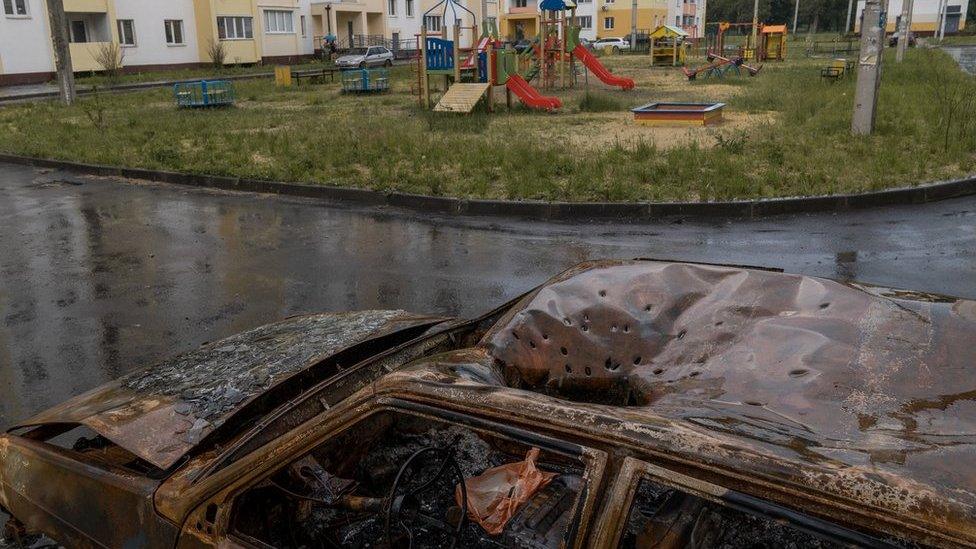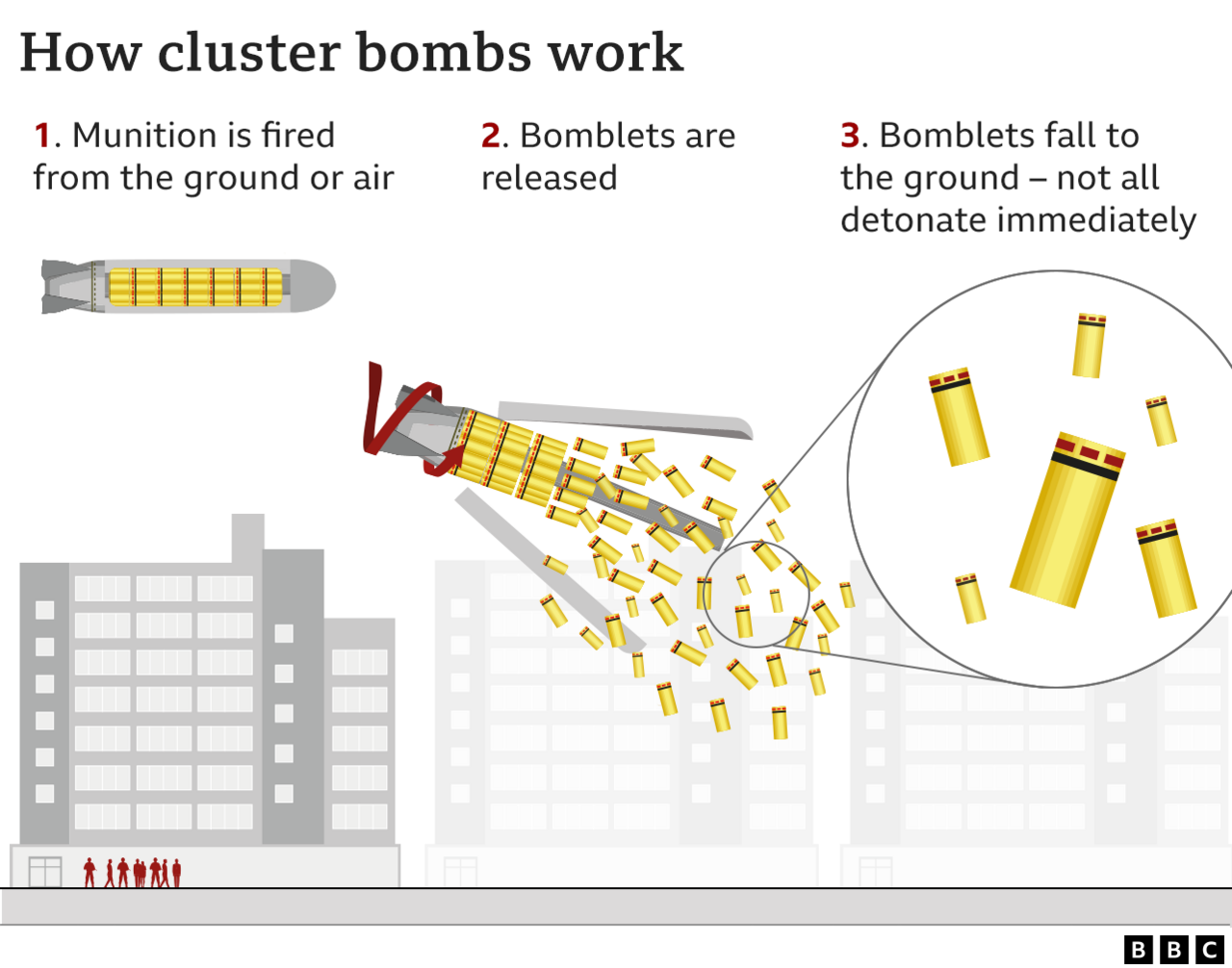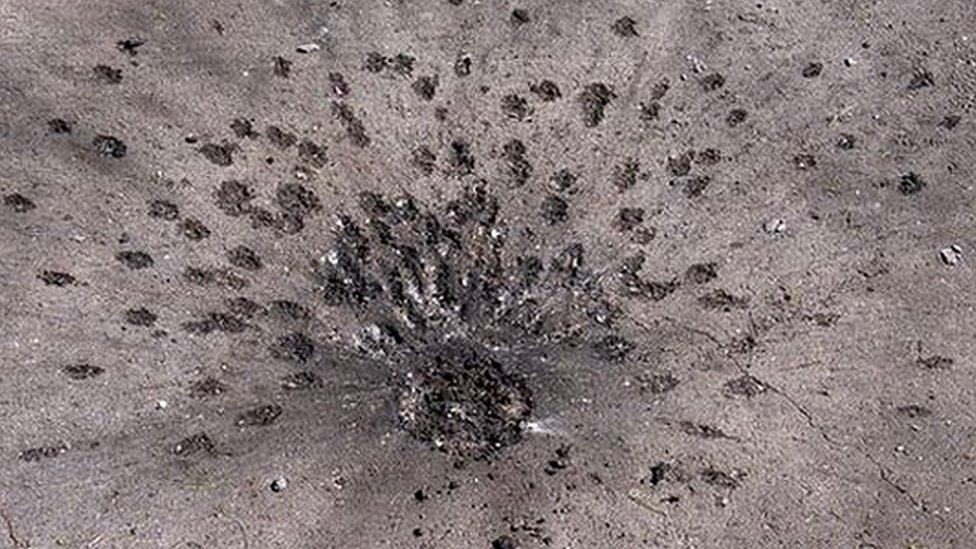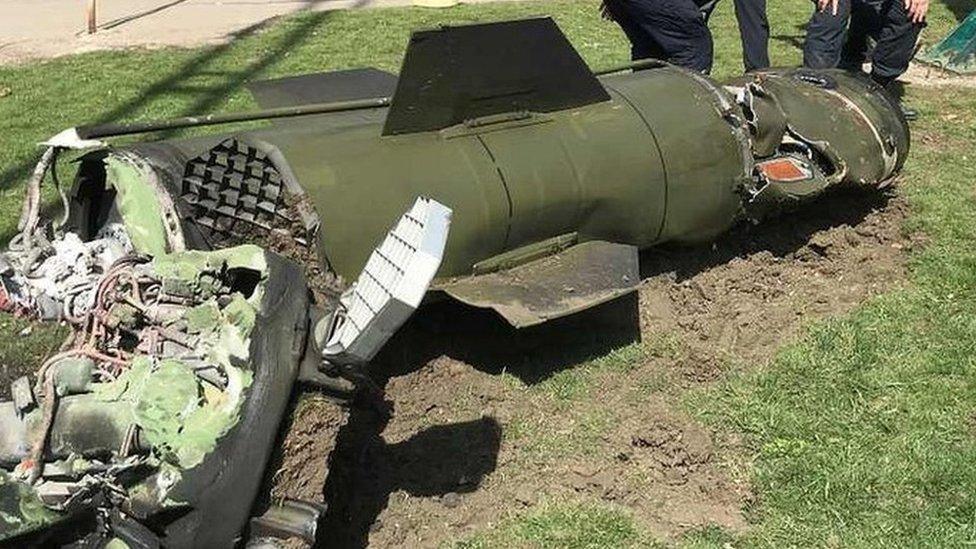What are cluster bombs and why is US sending them to Ukraine?
- Published

Distinctive marks from a cluster munition in the roof of a car next to a playground in Kharkiv
The US has announced it is complying with a Ukrainian request to supply it with controversial cluster munitions.
The move has been criticised by human rights groups as the weapon is banned by more than 100 countries.
What are cluster munitions?
Cluster munitions are a method of dispersing large numbers of tiny bomblets from a rocket, missile or artillery shell that scatters them in mid-flight over a wide area.
They are intended to explode on impact but a significant proportion are "duds", meaning they don't explode initially - this happens especially if they land on wet or soft ground.
They can then explode at a later date on being picked up or trodden on, killing or maiming the victim.
From a military perspective, they can be horribly effective when used against dug-in ground troops in trenches and fortified positions, rendering large areas too dangerous to move around in until carefully cleared.


Why are they banned?
More than 100 countries, including the UK, France and Germany, have signed an international treaty - the Convention on Cluster Munitions - that outlaws the use or stockpiling of these weapons due to their indiscriminate effect on civilian populations.
Children are particularly prone to injury as the bomblets can resemble a small toy left in a residential or farmland area and are often picked up out of curiosity.
Human rights groups have described cluster munitions as "abhorrent" and even a war crime.
Who still uses them?
Both Russia and Ukraine have been using cluster munitions since the start of Russia's full-scale invasion in February 2022.
Neither have signed the treaty banning them. Nor has the US, but it has previously criticised Russia's extensive use of the weapon.
Russian cluster munitions reportedly have a "dud rate" of 40%, meaning large numbers remain a hazard on the ground, whereas the average dud rate is believed to be close to 20%.
The Pentagon estimates its own cluster bomblets have a dud rate of less than 3%.
Why is Ukraine asking for them?
Ukraine's forces are running desperately low on artillery shells, largely because, like the Russians, they use them up at an extraordinarily high rate and Ukraine's Western allies cannot replace them at the speed they are needed.
In the largely static, grinding battlefronts of southern and eastern Ukraine, artillery has become a key weapon.
The Ukrainians now face a daunting task in trying to dislodge the invading Russians from their well dug-in defensive positions stretched along a 1,000km (621-mile) battlefront.
In the absence of enough artillery shells, Ukraine has asked the US to re-stock its supplies of cluster munitions to target the Russian infantry manning all those defensive trenches.
Some experts say that by using cluster bombs to suppress enemy fire from the trenches, Ukrainian forces could gain precious time to help them clear their way through Russian minefields.
But others say there is no need for them, arguing that different types of conventional weapons could do the job just as well.
This has not been an easy decision for Washington, and is deeply unpopular with many Democrats and human rights advocates. The debate has been going on for at least six months.
What effect will this US decision have?
The immediate effect will be to knock away much of the moral ground Washington sits on in this war.
Russia's numerous alleged war crimes are well-documented but this move is likely to draw accusations of US hypocrisy.
Cluster munitions are a hideous, indiscriminate weapon that is banned in much of the world for good reason.
This US move will inevitably place it somewhat at odds with its Western allies and any perceived split in that alliance is exactly what Russian President Vladimir Putin wants and needs.
Watch: US military video shows how cluster munitions explode
Related topics
- Published12 June 2022

- Published13 April 2022
